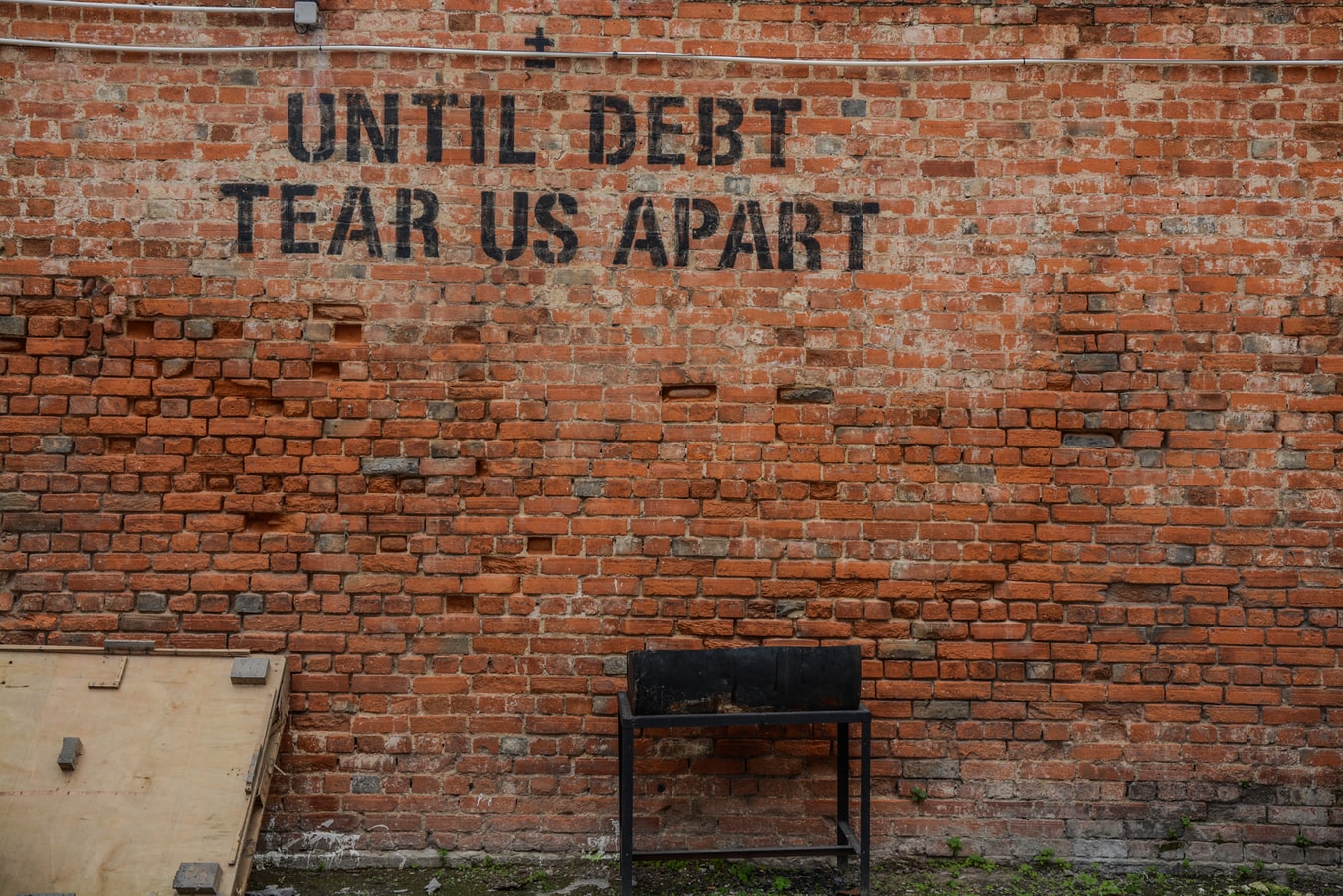Our company specialises in dealing with council tax debt, the most frequently encountered debt. The council strictly collects outstanding payments by obtaining quick County Court Judgments through magistrates courts. Subsequently, they assign these debts to bailiffs (enforcement agents) for collection. You’ve come to the right place.
What's Included?
What does that mean for me?
If you cannot pay or your council tax bill is late, it is important to take action as soon as possible. Delaying payment can result in more severe debt collection measures by the council, including the repossession of your personal belongings by bailiffs. However, there is a solution to prevent this from happening, and we can help.
When you contact our friendly team for the first time, we will be ready to assist you with any debt-related concerns. We will carefully review your financial situation and inform you of the precise solution to stop any additional action.
We are here to work for you and support you throughout your debt management journey. We maintain complete confidentiality while taking charge of your debt situation and collaborate with you to find a sustainable solution in the long run.
Can I Write Off Council Tax Debt?
If you have unpaid council tax, it may be possible to have a portion of the debt forgiven through an Individual Voluntary Arrangement (IVA). However, whether or not this is possible will depend on your council’s decision in a creditors’ meeting. Council tax debts are handled differently from other types of debts as the council can apply for a county court judgment (CCJ) quickly if the debt remains unpaid. Once your request has been approved, bailiffs will be instructed to come to your property immediately and take away goods worth the same amount as your outstanding debt, including any vehicles you own.
The bailiffs will charge additional fees, and the items in your property will be evaluated at a lower value.
If you cannot pay your council tax bill, it is important to act fast. We assist numerous individuals experiencing difficulties with paying their council tax bill and offer free, private guidance to prevent your debts from increasing. Don’t wait until it’s too late – contact us today.
How can Credibble help me?
Dealing with debt can be overwhelming, especially when debt collectors or bailiffs are involved. Don’t panic! The Credibble Team is here to help. We can help you to stop proceedings and reduce the cost of your debt for free.
We offer a unique debt solution service partnered with Equifax, a world leader in providing consumer credit report data. This means we have instant access to all your major debt without you having to search through your paperwork. Furthermore, we’re supported by the Natwest Accelerator Programme for business and have a multiyear relationship with the organisation. Our extensive and unique personal finance knowledge goes far beyond debt solutions – so you can trust that you are in safe hands.
- ✅ Write off unsecured debts over £6000
- ✅ Stop interest and charges soaring
- ✅ Reduce payments from £100 per month
To discuss your options and deal with your debt today, click the button to get started.
Get StartedHave You Recently Been Contacted Regarding Outstanding Council Tax Debt?
It’s common to have council tax arrears, as evidenced by the £944 million owed in the UK during the 2017-18 financial year. However, figuring out what to do once the debt piles up can be challenging. If your local authority has recently contacted you about your arrears, you may have some questions, such as:
- Can I get a council tax arrears payment plan?
- What happens to council tax debt after 6 years?
- Is it possible to get council tax debt written off?
- Can an IVA help with council tax debt?
We have created a comprehensive guide to help you with your debts and provide clear steps to take control. Our guide offers practical advice to help you understand what you must do to fix the situation before it worsens. Let’s dive right into it.
I Owe Council Tax – What Can I Expect?
You need to be aware that the collection process for council tax arrears can be quite aggressive. Your council may employ various enforcement methods to recover the outstanding amount. If you choose to ignore your council tax arrears, be prepared for the possibility of facing serious consequences.
- Repossession
- Home visits
- Removal of your goods
- Enforcement agents with the right to force entry into your home
- County court proceedings
So What Should I Do? Help With Council Tax Debt
It is important to address your council tax debt as soon as possible, even though it may not be easy. Avoiding or delaying the matter will only make it worse. Therefore, it is not advisable to take the opposite approach.
Additionally, since council tax payments are typically divided into 10 or 12 monthly instalments, taking prompt action may allow you to regain your ability to make monthly payments. However, even if you cannot agree to a suitable payment plan, demonstrating a willingness to participate in the process may be advantageous.
If you are contacted about council tax arrears, please get in touch with us as soon as possible. We can help you take the necessary steps to prevent bailiffs from accessing your property and resolve the issue before it becomes more serious.
What Are The Consequences of Not Repaying Council Tax Debt?
Although local authorities may have slight variations, council tax arrears are typically handled using a similar process throughout the country.
- If you fail to pay your council tax or choose not to make a payment, your local council will send you a reminder and provide you with a deadline of 7 days to pay it.
- If you do not comply, you may receive a “final notice” that requires you to pay the entire year’s council tax.
- If you don’t pay after receiving the final notice, the council may take legal action, including deducting money from your income or sending bailiffs.
What Are Income Deductions?
If legal action is taken, the council can direct your employer to deduct money from your wages. Similarly, government benefits, like other state benefits can also be used to recover the amount owed, even if you are not currently employed, such as:
- Income Support
- Pension Credit
- Employment & Support Allowance
- Universal Credit
- Jobseekers Allowance
Council Tax Bailiffs
People often ask if bailiffs will visit them for council tax debt. Unfortunately, the answer is yes. The next stage in the process is a visit from the bailiffs, which can be daunting.
If you have outstanding council tax arrears, you may experience a bailiff visit, which can be unpleasant. However, you will be notified in advance before they come. A court order will be required for the visit, and you should receive a notice 7 days beforehand.
The council may dispatch bailiffs to come to your property and take your belongings to collect payment for the debt.
You may have already received a notice and are anxious about proceeding. Perhaps a bailiff has even visited you. In that case, we recommend contacting a debt guidance service, such as Credibble, as soon as possible. This service can provide free and fast independent advice tailored to your situation.
You mustn’t allow bailiffs to enter your home under any circumstances. This cannot be emphasized enough. The following explains why…
What Can A Bailiff Do?
Compared to debt collectors, council tax bailiffs have greater authority. If you fail to reach a satisfactory payment agreement, bailiffs may seize your possessions and compile a list of items they can sell in the future. They can be tough to work with and are known for demanding high payments to avoid taking your belongings.
Council tax bailiffs can do the following:
- Visit your home
- Enter your home with a day’s notice in a peaceful manner
- Take away items from your house
- Attach a clamp to vehicles at your property
- Issue county court judgments (CCJs) to your credit file
Write off up to 81% of unaffordable debt.
Avoid
bankruptcy
Stop pestering calls from creditors
One affordable monthly payment
Which bailiffs collect debts for council tax?
Councils typically use the following debt collection companies to collect council tax debts:
- Moorcroft Group
- Lowell Financial
- Cabot Financial
- Rossendales
- Marston Holdings
- Advantis
- PRA Group
If you are being pursued by a different company for unpaid council tax, you can handle the situation in the same way as with the above-mentioned companies. Keep reading for further details.
I’m Worried – Will Bailiffs Force Entry to My Home?
Remember that bailiffs can only seize your possessions after they have obtained peaceful access to your home. Therefore, it’s important not to let them in. Even if you accidentally leave a door or window open or if you answer the front door, the bailiffs can use it as an opportunity to gain access and seize your possessions.
Although it is rare for bailiffs to enter a home to collect unpaid council tax debts forcibly, they may enter through an unlocked door. It’s best to seek help from a debt advice service to find a solution that doesn’t involve losing your possessions.
This is better than giving up your belongings or waiting for them to stop trying.
Council Tax Arrears – How Far Back Are You Liable?
There is a misconception that council tax debt will be written off after 6 years, but there is no time limit for councils to collect debts. They have the right to collect any debt owed to them regardless of how long it has been.
The council can only legally chase a debt for up to 6 years after your last contact. However, this is not typically a problem for the council because their systems automatically file a CCJ and refer the debt to the magistrates court if payment is not received within 7 days.
After this period, your debt will not be forgiven automatically.
Can I Go to Jail for Not Paying Council Tax?
Are you worried about the possibility of being jailed for council tax arrears? While this may seem like scaremongering, it’s important to understand that you could face a prison sentence of up to 3 months if you refuse to pay your council tax. Even if you have the means to make your payments but choose not to, your local authority may request that you be sent to prison.
It is important to remember that being jailed for not paying council taxes is very uncommon. Although some individuals have been imprisoned for this reason in the UK, it is not a probable outcome.
Before you can be penalised for not paying your taxes, the judge must be convinced that you have either refused to pay willingly or have been neglectful.
To clarify, not repaying the debt despite having the ability to do so can lead to imprisonment. Making consistent payments, even small, can help demonstrate to the magistrates that you are making a sincere effort to pay. Although uncommon, there have been cases of individuals being imprisoned for not paying their council tax.
If you cannot pay your council tax, getting financial advice as soon as possible is important. The thought of bailiffs, court appearances, and even imprisonment can be intimidating. To avoid getting to that point, it’s best to take action to manage your council tax debt early on. Here’s what you can do.
The local authority instructs bailiffs who their order can stop. We may provide professional advice to persuade your local authority to cease bailiff action. Otherwise, prepare for frequent visits.
Our professional experience has shown that using deceptive letters and technical language to prevent bailiff action is ineffective. Therefore, we advise against following such advice.
To stop a bailiff from visiting your property, you must enter into an Individual Voluntary Agreement (IVA), which works as a payment plan for your council tax arrears over a specific period. Once you’ve entered an IVA, the bailiff can no longer legally visit your property. Additionally, there’s a chance that your council tax debt may be written off eventually. However, acting quickly and entering the IVA before the bailiff seizes any goods is important.
What’s an IVA?
Individuals who have accumulated council tax debt can eliminate a significant portion by opting for an IVA. This is the only legitimate method (apart from declaring bankruptcy) to eliminate council tax debt. Under an IVA, the person must pay back a percentage of their overall debt for 5 years. Once this period is over, the remaining debt will be eliminated, resulting in freedom from debt.
It is possible to write off a portion of your council tax debt by including it in an Individual Voluntary Arrangement (IVA). However, you must meet certain requirements.
Basic Requirements for an IVA
- To meet the requirement, you must owe money to at least two creditors, and the total debt amount should be £5000 or more.
- To be eligible, your income must be at least £800 regularly.
- To be approved, your council must be on our list. Depending on the council, you may be able to pay back only a portion of your council tax debts, while others may require the full amount.
Get IVA Advice Today
The council offices listed below will likely vote in favour of your IVA proposal:
- Bolsover District Council
- Bolton
- Brighton & Hove
- Bristol
- Bromley
- Caerphilly
- Oldham
- Canterbury
- Nottingham
- Newcastle Under Lyme
- Carmarthenshire
- Derby
- Devon
- East Hampshire
- East Lindsey
- Newark & Sherwood
- Newcastle Under Lyme
- Hastings
- Havant
- Kings Lynn & West Norfolk
- Kirkless Council (KPMG)
- Lewes
- Newport
- Liverpool
- Newcastle upon Tyne
- London Borough of Redbridge
- Mendip
- North Kesteven
- Plymouth
- Portsmouth
- Reading
- Redcar and Cleveland
- Reigate & Banstead
- Rochdale Borough Council
- Rochford
- Rotherham
- Rugby Borough Council
- Rushcliffe
- South Oxfordshire
- Stockport
- Surrey Heath Borough Council
- Tendring
- West Lancs Borough Council
- Wolverhampton
- North East Lincolnshire
- Dacorum
- Rhondda Cynon Taf Council
I Can’t See My Council – What Does That Mean?
Although the list above is based on our previous approvals, it is not exhaustive. If your council is not mentioned, please get in touch with us to determine if your debt can still be eligible for entering into an arrangement. No new information or facts are added in this rewrite.
Which Debts Can Be Included In Your IVA?
If you are dealing with council tax debt, you may face other types of debt. The positive side is that an IVA can help with more than just council tax debt. Your IVA can potentially include any of the debts listed below:
- Council tax from previous years and current year (if in arrears)
- Unsecured debts (overdrafts, credit cards, store cards, charge cards, catalogues, payday loans, unsecured loans, doorstep loans, credit unions, debts with CCJ linked to them)
- Bailiff debts; e.g. Moorcroft Group, Lowell, Bristow and Sutor, Cabot Financial, Advantis, and PRA Group.
- Utility supplier debts; e.g. gas, electricity, water
- Service providers e.g. digital TV, mobile phones, landlines
- Debts secured against an asset that has undergone repossession
- Vehicle HP and properties
- debts owed to family and friends.
- HM Revenue and Customs VAT, PAYE, Self-assessed tax, National Insurance
Debts That Cannot Be Included In An IVA
Some debts are not eligible for inclusion in an IVA. Instead, these debts are considered as part of your monthly household expenditure allowance. Here are some:
- Mortgages and secured loans
- Hire purchase payments
- Student loans
- Child maintenance
- Rent & property service charges
- Current utility bills
- Current service providers
- Court fines
- Someone else’s debts
Council Tax Debt Written Off? Get Started Today
If you’re having difficulties with council tax debt, you might be eligible to enter an IVA agreement. However, you must act quickly and enter an IVA before your possessions are seized. Some basic requirements and differences are depending on your location. To begin a free assessment of your situation, click here to see your options.
We have debt specialists on hand who could write off up to 81% of your debt
With our unique technology we can find all of your major debts within a few clicks
Check if you qualifyFrequently Asked Questions
What happens if I miss a council tax payment?
If you fail to pay your first council tax instalment, the council will initiate a debt collection procedure.
- You will receive a reminder to pay your council tax within 7 days. If you fail to make the payment within this period, you will be issued a second notice to pay the full amount. It’s worth noting that the council can only send you 2 reminders in one financial year.
- If you fail to make payment for a third time, the council will issue a bill for the entire fiscal year. You’ll need to pay this bill in full within 7 days.
- If you don’t pay, your account will be sent to bailiffs for collection. This may result in a CCJ being added to your credit file for 6 years.
- You will receive a warning from the bailiffs giving you 7 days to pay the full amount of the account. Failure to comply will result in a home visit where they will attempt to repossess items equivalent to the balance owed.
Can my council tax arrears be written off?
Councils can choose to write off arrears, but they typically do not do so voluntarily. Instead, they follow a strict collection process without deviation.
In case you cannot afford to pay your debts, you can consider declaring bankruptcy or entering into an IVA. These are official agreements that have a set duration. When the term ends, your debts will be completely cleared, thus making you debt-free.
Please note that there is no guarantee that your council will approve an IVA. However, you can refer to this page for a list of councils that have approved IVA proposals in the past.
Will my items be repossessed for not paying council tax?
If you owe council tax arrears, bailiffs can take items from your home to repay the debt.
The council has a strict process that they must follow, including:
- Sending reminder letters
- Issuing an annual bill that must be paid in full and accompanied by a pre-action letter
- Applying a CCJ (County Court Judgment)
- Referring the matter to bailiffs.
If your debt is sent to bailiffs, they will give you a 7-day notice before coming to your property. If you are in this situation, it is recommended to seek independent financial advice as soon as possible to prevent additional action.
Will an IVA help with unpaid council tax debts?
In order to qualify for an IVA, you must obtain agreement from at least 75% of your creditors for the proposed plan. It’s important to note that some councils may approve or reject IVAs. Please refer to our page for up-to-date information on which councils approve IVAs.
Can you be forced to pay council tax?
Yes, payment of council tax is mandatory by law in the UK. Non-payment can result in legal action by the council against you. [1]
Can you negotiate council tax debt?
You may be able to negotiate repayment plans or reduced payments for council tax arrears. Contact your council’s debt management team to discuss options. [2]
How long before council tax debt is written off?
Council tax arrears do not get written off. The council will pursue repayment, including legal action if necessary, for any unpaid tax. [3]
What is a council tax demand?
A council tax demand is a bill issued by your local authority stating how much council tax you owe for the year. Demands are usually sent annually. [4]
Is non payment of council tax a criminal offence?
Non-payment of council tax is a civil matter, not criminal. However, tax evasion or fraud are criminal council tax offences. [5]
Is council tax a statutory demand?
A council tax bill is not a statutory demand. However, unpaid council tax debt can potentially lead to bankruptcy proceedings through a statutory demand. [6]
What happens if you don’t pay council tax on time?
Late or missed payments lead to reminders, court action like liability orders, enforcement agents, deductions from earnings/benefits or even imprisonment in worst cases. [7]
How much can council tax take from my wages?
Councils can request attachments of earnings orders to deduct council tax directly from wages. This is usually a percentage based on income. [8]
What to do if you think you are paying too much council tax?
Appeal to the valuation office if your property is in the wrong band. Check for discounts, exemptions and support if facing financial hardship. [9]
Can HMRC check council tax?
Yes, HMRC and local councils share taxpayer information including income, tax credits and council tax to check accuracy. [10]
Can I appeal a council tax attachment of earnings?
You can appeal a council tax attachment of earnings if you face financial hardship. Contact the council urgently for the appeal process. [11]
Can you go to jail for not paying council tax in England?
Failure to pay council tax cannot directly result in imprisonment in England. But repeat non-payment and ignoring procedures can potentially lead to prison. [12]
What happens if I don’t pay tax?
Non-payment of taxes owed to HMRC, like income tax and VAT can initially lead to penalties and interest. Criminal proceedings may follow for continued evasion. [13]
How to avoid second home council tax?
You cannot legally avoid council tax on second homes. Legitimate ways to reduce costs include applying for discounts or trying to let the property. [14]
References:
- https://www.citizensadvice.org.uk/debt-and-money/council-tax/paying-your-council-tax/
- https://www.stepchange.org/debt-info/council-tax-arrears.aspx
- https://www.experian.co.uk/consumer/guides/council-tax.html
- https://www.gov.uk/challenge-council-tax-band
- https://www.findlaw.co.uk/law/government/council-tax/council-tax-offences.html
- https://www.debtcollective.uk/guides/council-tax
- https://www.citizensadvice.org.uk/debt-and-money/council-tax/miss-council-tax-payments/
- https://www.stepchange.org/debt-info/attachment-of-earnings-orders-council-tax.aspx
- https://www.moneysavingexpert.com/reclaim/council-tax-refunds/
- https://www.gov.uk/government/publications/exchange-of-information-with-local-authorities
- https://www.citizensadvice.org.uk/debt-and-money/if-you-cant-pay-your-debts/stopping-a-deduction-from-benefits-or-wages/
- https://www.williamsandhughes.co.uk/resources/blog/failure-to-pay-council-tax
- https://www.gov.uk/tax-payments/non-payment-penalties
- https://www.moneysavingexpert.com/reclaim/council-tax-second-home-discount/









